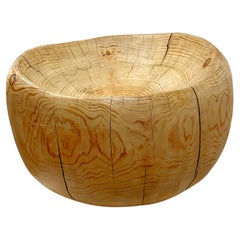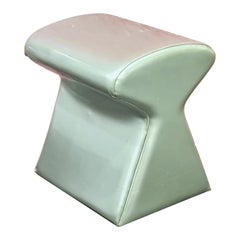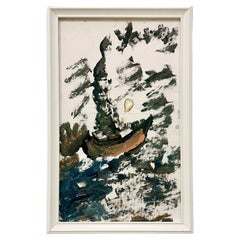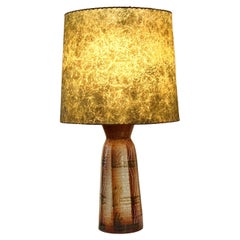Want more images or videos?
Request additional images or videos from the seller
1 of 8
India Mahdavi France Pair Bishop Ceramic Stools / Side Tables 1999 Design
Price:$1,950
$2,495List Price
About the Item
- Creator:India Mahdavi (Designer)
- Dimensions:Height: 23.62 in (60 cm)Width: 15.748 in (40 cm)Depth: 15.748 in (40 cm)Seat Height: 23.62 in (60 cm)
- Sold As:Set of 2
- Style:Modern (Of the Period)
- Materials and Techniques:
- Place of Origin:
- Period:
- Date of Manufacture:circa 2000s
- Condition:Wear consistent with age and use. No noticeable scratches, wear or other marks found. No chips or cracks. Beautiful condition.
- Seller Location:Cathedral City, CA
- Reference Number:Seller: OC 95321stDibs: LU8352234166992
About the Seller
5.0
Gold Seller
Premium sellers maintaining a 4.3+ rating and 24-hour response times
Established in 2000
1stDibs seller since 2023
23 sales on 1stDibs
Authenticity Guarantee
In the unlikely event there’s an issue with an item’s authenticity, contact us within 1 year for a full refund. DetailsMoney-Back Guarantee
If your item is not as described, is damaged in transit, or does not arrive, contact us within 7 days for a full refund. Details24-Hour Cancellation
You have a 24-hour grace period in which to reconsider your purchase, with no questions asked.Vetted Professional Sellers
Our world-class sellers must adhere to strict standards for service and quality, maintaining the integrity of our listings.Price-Match Guarantee
If you find that a seller listed the same item for a lower price elsewhere, we’ll match it.Trusted Global Delivery
Our best-in-class carrier network provides specialized shipping options worldwide, including custom delivery.You May Also Like
Ralph Pucci International India Mahdavi Bishop Stool, Side Table in Silver
By Ralph Pucci, India Mahdavi
Located in Miami, FL
Ralph Pucci International India Mahdavi Bishop Stool, Side Table in Silver
Offered for sale is an India Mahdavi Bishop Stool in Silver that add...
Category
Early 2000s French Modern Stools
Materials
Ceramic
Marble Babibishopos by India Mahdavi
By India Mahdavi
Located in Pireaus-Athens, Greece
The new commission by Carwan Gallery is a reflection on the link between India Mahdavi’s work and the erasure of colour.
from classical art and architec...
Category
2010s Side Tables
Materials
Marble
Marble Bishopos by India Mahdavi
By India Mahdavi
Located in Pireaus-Athens, Greece
The new commission by Carwan Gallery is a reflection on the link between India Mahdavi’s work and the erasure of colour
from classical art and architect...
Category
2010s Side Tables
Materials
Marble
Caltagirone Ceramic Multi-Color Stool/Side Table
Located in Roma, RM
This is a one-of-a-kind handmade high-fire ceramic stool. Not simply a piece of furniture this stool/side table is a functional piece of art and makes a useful and eye-catching addit...
Category
2010s Italian Modern Stools
Materials
Ceramic
Pair of French Rococo Style Side Tables or Stools
Located in Sheffield, MA
Pair of French Louis XV style painted side tables or stools with upholstered top. Use as stools for extra seating. Rococo Style grey painted...
Category
20th Century French Provincial Stools
Materials
Wood
Griffin Stool / Side Table by Phase Design
By Reza Feiz, Phase Design
Located in North Hollywood, CA
Listed price is for the Griffin stool / side table in either walnut, white oak, or ebonized oak.
Prices exclude packing.
This versatile piece works interchangeably as a side table or stool. Made from a hand sanded fiberglass shell and finished with a high-end automotive polyurethane gloss finish, it is lightweight and durable. The 1.5" solid lumber top tempers the clean architectural form with its warm organic...
Category
2010s American Side Tables
Materials
Wood, Oak, Walnut, Fiberglass
Side Table / Stool
Located in Limhamn, Skåne län
Side table / stool by unknown designer.
Category
21st Century and Contemporary European Modern Side Tables
Materials
Oak
Contemporary Ceramic Side Table Column Stool Caramel Glazed Stoneware
By Xavier Mañosa, Apparatu
Located in Rubi, Catalunya
Handmade stoneware side table manufactured at the workshop of Apparatu in Barcelona. Different clay bodys are mixed with natural fibers like corn, straw, or heather straw. The pieces...
Category
2010s Spanish Modern Stools
Materials
Ceramic, Earthenware, Stoneware
$5,265
H 15.36 in W 16.15 in D 16.15 in
Contemporary Ceramic Facetated Side Table Column Stool Unglazed Stoneware
By Apparatu, Xavier Mañosa
Located in Rubi, Catalunya
Handmade earthenware facetated side table manufactured at the workshop of Apparatu in Barcelona. Different clay bodys are mixed with natural fibers like corn, straw, or heather straw...
Category
2010s Spanish Modern Stools
Materials
Ceramic, Earthenware
$5,265
H 13.78 in Dm 15.75 in
Contemporary Facetated Ceramic Side Table Column Stool Glazed Caramel
By Xavier Mañosa, Apparatu
Located in Rubi, Catalunya
Handcasted and facetated stoneware side table manufactured at the workshop of Apparatu in Barcelona. Different clay bodys are mixed with natural fibers like corn, straw, or heather s...
Category
2010s Spanish Modern Stools
Materials
Ceramic, Stoneware
$5,265 / set
H 11.82 in Dm 15.75 in
More From This Seller
View AllDaniel Pollock Organic Modern Carved Pine Wood Stool or Sculptural Object, 1995
By Daniel Pollock
Located in Cathedral City, CA
Daniel Pollock organic modern carved wood stool or sculptural object hand carved out of pine wood. This is a very heavy piece and the imperfections only add to its charm and appeal. ...
Category
1990s American Organic Modern Stools
Materials
Wood, Pine
Karim Rashid Silver Vinyl Shroom Stool for IDEE Limited Edition Signed Numbered
By Karim Rashid, Idée Japan
Located in Cathedral City, CA
Karim Rashid Shroom Stool designed for IDEE, Japan in 1998. This silver vinyl version was a limited edition and is signed and numbered #4/57 on the IDEE labeled fabric on the bottom of the stool. It was part of the TOTEM Design collection; TOTEM - The Objects That Evoke Meaning - was a a progressive and influential retail design gallery in Manhattan operating between 1994-2004 that represented cutting edge modern design of the period.
Overall the stool is on good condition with a couple small tears, minor dents and scuffs to the vinyl, and wear as shown in the detail photos.
The stool measures 18" high x 16 ½" wide x 14" deep.
Karim Rashid (born 1960) is an Egyptian-born and Canadian raised industrial designer. His designs include luxury goods, furniture, lighting, surface design, brand identity and packaging. Time magazine has described him as the "most famous industrial designer in all the Americas" and the "Prince of Plastic". He is based in New York City, as well as Belgrade, Miami and India.
Rashid's work is featured in 20 permanent collections. His pieces are exhibited in museums worldwide, including the MoMA, Centre Pompidou, and SFMOMA. He is known for designs such as the "Garbo" waste can and "Oh Chair...
Category
1990s Japanese Futurist Stools
Materials
Upholstery, Synthetic, Foam, PVC
Purvis Young (1943-2010) "Sailing to Freedom" Painting, 1999
By Purvis Young
Located in Cathedral City, CA
Purvis Young (1943-2010) "Sailing to Freedom" Painting, 1999
Includes signed COA document from Patrick T. and Just A. Parker indicating the painting was acquired directly from the a...
Category
Late 20th Century American Modern Paintings
Materials
Acrylic, Wood, Paint, Paper
Design Technics Brown Tone Ceramic Lamp with Original Fiberglass Shade, ca 1950s
By Design Technics
Located in Cathedral City, CA
Design Technics Brown Tone Ceramic Lamp with Original Fiberglass Shade, ca 1950s
This lamp was purchased in New Jersey around 2013 at the Estate of one of the cousins of the Design ...
Category
Mid-20th Century American Mid-Century Modern Table Lamps
Materials
Metal
Karim Rashid for Leonardo Germany Limited Edition New Move Glass Vase, ca 1999
By Karim Rashid
Located in Cathedral City, CA
Karim Rashid for Leonardo Germany Limited Edition New Move Silver Glass Vase, ca 1999.
Measures 8” high, base 3-1/2” wide, and mouth 2-1/4” wide.
There is a small scratch of silver finish/coating on glass (we've posted an image of the interior and exterior at the area of the scratch). There is also a faint area of small blemishes at the base See images for more detail.
If there’s one thing karim rashid hates, it’s trophies. The 40-year-old designer has more than 40 of them, from big international ones like the 1999 George Nelson Award (given for breakthrough furniture design), to quaint little Canadian ones like Designer of the Year 2001. “It came with a little pin,” says Rashid, “and a … a … very nice …” He tries to describe the shape of the award with his hands but gives up. “It’s time that whole trophy thing changes. It’s kitsch. They’re functionless things.” Rashid was asked to design one for the DaimlerChrysler Design Awards (he’s a past recipient). “I was going to make it electro-luminescent. When the lights go out, it has a sensor so it turns on,” he says. But the trophy-as-night-light, a reminder of one’s worth in the darkest hours, didn’t impress Chrysler’s people. He never heard back.
They may well be gnawing their knuckles over that decision right now because Rashid’s conquest of the realm of product design is all but complete. A lush and suitably worshipful retrospective of his work, Karim Rashid: I Want to Change the World (Thames & Hudson; 249 pages), hits Australasian bookstores this month. There was a crowd around anything with his stamp on it-including stools, chess sets and storage units-at the recent International Contemporary Furniture Fair in New York City. More than 2 million North Americans are throwing their rubbish into a receptacle he designed, while 750,000 or so park their rears on one of his cheapo plastic chairs. It’s not just in North America. He has been dubbed Der Poet des Plastiks by a retailer in Germany and the prolifico progettista Americano by Interni magazine in Italy.
Trophies he may despise, but accolades Rashid can handle. The problem with being the Most Famous Industrial Designer in All the Americas is that you’re still less famous than someone who got kicked off Survivor the first week. Most people cannot name the designer of one nonclothing item in their homes. Rashid, who was born in Egypt, raised in Canada and is living in New York City, is more than happy to bring an end to this anonymity. Not just because he wants to be famous, although there seems to be that, but because he believes design should be a bigger part of the social discourse. “I have been almost alone in this country, trying to make design become a public subject,” he says.
His chief method of persuasion is to make the banal better so that people notice design more. He likes creating expensive furniture and perfume bottles just fine, but what really gets his juices going is the everyday: manhole covers, a cremation urn, disposable cigarette lighters, garbage bins, salt and pepper shakers, plastic pens. “I want American Standard to come to me to do the toilets for Home Depot,” he says.
In many ways Rashid is more like an itinerant industrial evangelist than a designer. He traveled 200 days last year. He claims to have been to every major mall in America, where he signs his products in high-end design stores and trolls about observing humans interacting with the objects around them. He has taught at design schools for more than a decade, and his work has been in 11 art shows in the past eight months. But mostly he has proselytized the corporate barbarians. And like any good missionary, he has learned to speak the language of his converts. One of the first things he does when he gets new clients is tour their factories to understand their manufacturing capacity. He also visits the retail outlets to see how the product might be displayed. And he really knows how to sell, especially himself. “I work with a guy in L.A.,” says Rashid, declining to name him. “He made a lot of really bad furniture. His business was hand-to-mouth. I proposed seven or eight projects. The pieces I’ve done for him have already become iconic.” The subtitle of his monograph, I Want to Change the World, is not ironic, just characteristically immodest.
“Most industrial-design studios try to interpret a client’s needs and come up with a style,” says Paul Rowan, co-founder of housewares manufacturer Umbra. “Karim has his own personal vision.” It helps that Rashid’s vision incorporates things that Rowan needs, like a design that will stack and ship easily and that creates little waste in the making.
Rashid’s father was a set designer for Canadian TV who rearranged the family furniture every Sunday. So perhaps it was ordained that Karim would grow up to become one of the pioneers in non-cheesy plastic, making objects that have energy and personality but aren’t wacky. He, like many of his generation, has championed the could-only-be-designed-with-computers blob. But his is not just a blob for its own sake. His Oh Chair...
Category
1990s German Minimalist Vases
Materials
Blown Glass
Lee Rosen Design Technics Incised & Slip Decorated Abstract Design Vase ca 1950s
By Design Technics, Lee Rosen
Located in Cathedral City, CA
Lee Rosen for Design Technics Incised and Slip Decorated Abstract Design Vase, ca 1950s
This is a gorgeous and unique Design Technics vase by Lee Rosen that features a biomorphic sh...
Category
Mid-20th Century American Mid-Century Modern Vases
Materials
Ceramic, Pottery



